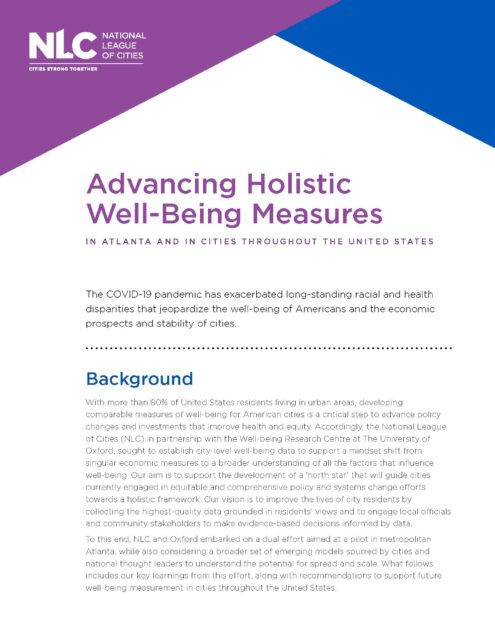With more than 80% of United States residents living in urban areas, developing comparable measures of well-being for American cities is a critical step to advance policy changes and investments that improve health and equity. Accordingly, the National League of Cities (NLC) in partnership with the Well-being Research Centre at The University of Oxford, sought to establish city-level well-being data to support a mindset shift from singular economic measures to a broader understanding of all the factors that influence well-being.
Our aim is to support the development of a ‘north star’ that will guide cities currently engaged in equitable and comprehensive policy and systems change efforts towards a holistic framework. Our vision is to improve the lives of city residents by collecting the highest-quality data grounded in residents’ views and to engage local officials and community stakeholders to make evidence-based decisions informed by data.
NLC and Oxford embarked on a dual effort aimed at a pilot in metropolitan Atlanta, while also considering a broader set of emerging models spurred by cities and national thought leaders to understand the potential for spread and scale. What follows includes our key learnings from this effort, along with recommendations to support future well-being measurement in cities throughout the United States.









